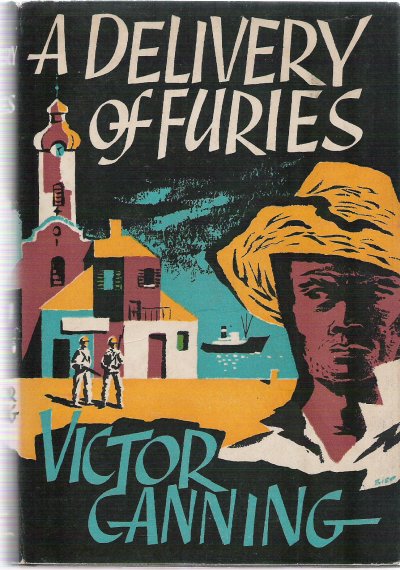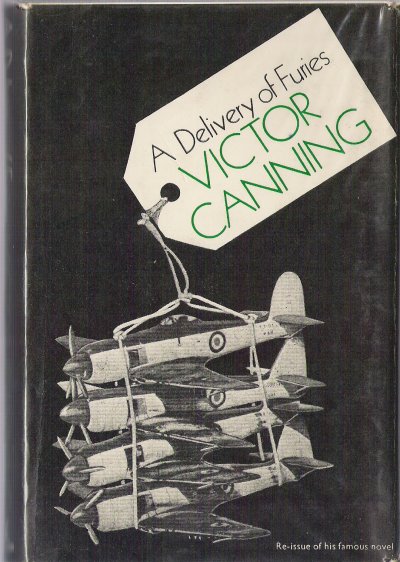
First edition
1961

US First edition
1961

Uniform edition
1969

Chivers large print
1992

Compilation
1986
 First edition 1961 |
 US First edition 1961 |
 Uniform edition 1969 |
 Chivers large print 1992 |
 Compilation 1986 |
The BookThe story is told in the first person (unusually for Canning) by Keith Marchant, ex RAF pilot engaged in shady flying around the Caribbean and trying to retain the affections of his girlfriend Drea who wants him to settle down. He takes on one last mission for a small-time rebel leader, is cheated, and has to try to recover his fee and his self-respect. |
Printing HistoryPublished by Hodder and Stoughton in 1961 at 15/- with a print run of 11,000. The US first edition by W Sloane Associates came out in the same year. The book was re-issued in the Heinemann Uniform Edition in 1969 and reprinted in 1971. It was also included in the 1986 Ravette omnibus edition together with The Python Project and The Melting Man. The very striking cover design for the British first edition is by the magnificent Val Biro, designer of 3,000 book covers. |
Shakespeare
A feature of this book is that the narrator keeps incorporating
lines from Shakespeare into his thoughts. These include:
The source of all these quotations is not supplied; the reader is expected to know Shakespeare. This is the only book in which Canning indulges in this kind of literary play, though in one other book, The Satan Sampler the way the characters throw quotations at each other acquires significance for the plot. |